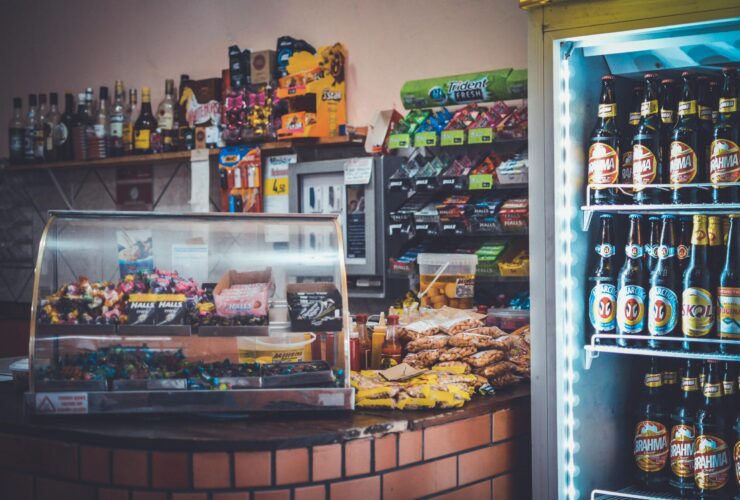Gas Station Heroin: What It Is, Why Zaza Is Dangerous, and What to Know
Gas Station Heroin: What It Is and Why It’s So Dangerous
The term “gas station heroin” refers to tianeptine, a drug that’s gaining popularity across the U.S. despite being extremely dangerous. Sold under brand names like Zaza Red, Tianaa, and TD Red, this unregulated substance is often found in gas stations, smoke shops, and online wellness stores.
Tianeptine is marketed as a dietary supplement for mood, focus, or energy—but it behaves more like a powerful opioid. Many users have no idea that they’re taking something that can cause dependence, withdrawal, and overdose. That’s why tianeptine has earned the nickname gas station heroin—a warning to those who might assume it’s safe just because it’s sold legally in stores.
What Is Tianeptine—And Why Is It Called Gas Station Heroin?
Tianeptine is a drug originally developed as an antidepressant in France. At therapeutic doses, it may have mood-enhancing effects—but at higher doses, it activates the same opioid receptors as heroin and fentanyl. In the U.S., tianeptine has never been approved by the FDA for any use, and yet it continues to be sold in brightly labeled bottles that make it look like a harmless supplement.
Because of how it mimics the effects of street opioids—and how easily it’s bought over the counter—it has become known as gas station heroin. The nickname isn’t an exaggeration. Tianeptine can produce a rapid high, lead to physical dependence, and trigger withdrawal symptoms that some users describe as more intense than heroin detox.
How Gas Station Heroin Affects the Body
When someone takes tianeptine, they may feel a brief sense of calm, reduced anxiety, or a mild euphoric high. This is because the drug binds to mu-opioid receptors in the brain, just like heroin or morphine. But the effects don’t last long, and users often feel the need to take more within hours.
Over time, this cycle creates tolerance, meaning the person needs more and more of the drug to feel the same effects. As dependency builds, so does the risk of serious side effects, including:
- Digestive issues like nausea, cramping, and vomiting
- Shaking, chills, muscle tension, and restlessness
- Extreme anxiety, irritability, or depression
- Difficulty concentrating or staying awake
- Slowed breathing, especially at high doses
What starts as “just a supplement” can quickly become a full-blown addiction. The term gas station heroin captures the deceptive ease with which people—especially young adults—can fall into this pattern.
Why Gas Station Heroin Is a Threat to Recovery
People in addiction recovery are especially vulnerable to tianeptine. On the surface, it looks nothing like heroin or fentanyl. It’s sold in shops. It doesn’t come with a dealer. It may even have “natural” or “herbal” printed on the label.
But the opioid-like properties of tianeptine can quietly trigger a relapse. Someone who’s been clean for months or years might take it thinking it’s safe, only to find themselves stuck in a new cycle of cravings and withdrawal. Many users describe the withdrawal from gas station heroin as brutal—marked by insomnia, cold sweats, uncontrollable shaking, and severe depression.
And unlike regulated medications, tianeptine products don’t come with dosage instructions, warnings, or consistent formulations. One bottle of Zaza might contain three times the strength of another.
Overdose Risks of Gas Station Heroin
Gas station heroin doesn’t just cause addiction—it can also lead to life-threatening overdoses. Because it depresses the central nervous system, large doses of tianeptine can slow breathing to dangerously low levels, especially if mixed with alcohol, benzodiazepines, or other sedatives.
Many people don’t realize that naloxone (Narcan) may not fully reverse a tianeptine overdose, particularly if the product has been mixed with other unlisted compounds. This makes first-response treatment more complicated and raises the stakes for every person experimenting with it.
The FDA has received numerous reports of hospitalizations linked to tianeptine, and several states—including Alabama, Michigan, Tennessee, and Georgia—have taken steps to ban or restrict its sale. Still, it remains accessible in many areas, especially online.
What to Do If You or Someone You Love Is Using Gas Station Heroin
If someone you know is using Zaza, Tianaa, or any other tianeptine-based product, take it seriously. Although these products may look legal or harmless, they are addictive, risky, and difficult to quit without support.
Do not attempt to stop cold turkey without medical guidance. Withdrawal from gas station heroin can be intense and may require professional detox care. If you’re in recovery and have taken tianeptine, talk to your counselor or recovery team immediately—this is not a small slip. It’s a drug with real opioid effects.
The Truth About Zaza
Tianeptine hides in plain sight. It’s packaged like a wellness product and sold alongside vitamins and energy shots—but it works like a street drug. Calling it gas station heroin isn’t fearmongering. It’s reality.
Whether you’re a parent or someone in recovery, knowing what tianeptine is—and what it does—is the first step to stopping the harm. Don’t let a label fool you. Don’t let a gas station become a relapse trap.
Frequently Asked Questions About Gas Station Heroin, Zaza, and Tianeptine
What is gas station heroin?
“Gas station heroin” is a street nickname for over-the-counter products like Zaza or Tianna Red that contain the drug tianeptine. These supplements are often sold in convenience stores or online and can mimic the effects of opioids — leading to dangerous dependency and withdrawal symptoms.
Is Zaza legal?
Laws vary by state. As of now, Zaza (tianeptine) is banned in several states, but it’s still available in others due to loopholes in regulation. The FDA has issued multiple warnings about Zaza and similar products, but federal scheduling is still pending in some areas.
What drug is in Tianna Red?
Tianna Red contains tianeptine, a substance originally developed as an antidepressant overseas but never approved by the FDA. It acts on mu-opioid receptors, meaning it can produce opioid-like effects — including euphoria, addiction, and withdrawal.
Can you get high off gas station drugs?
Yes — many people report feeling high after taking gas station drugs like Zaza, Tianna Red, or Pegasus. These products can create a euphoric effect, especially when taken in high doses. This is what makes them so dangerous and addictive.
Can you overdose on Zaza?
Yes. Overdosing on Zaza (tianeptine) is possible and has led to seizures, loss of consciousness, and death in some cases. Because it mimics opioids, it carries many of the same overdose risks — especially when combined with alcohol or other depressants.
Where is Zaza banned?
As of 2025, Zaza is banned in states like Michigan, Alabama, and Tennessee, among others. Some states have classified tianeptine as a Schedule II controlled substance, but in many areas, it remains legal and unregulated — which is why awareness is critical.
Is Muscimol the same as tianeptine?
No. Muscimol is a psychoactive compound found in Amanita mushrooms, while tianeptine is a synthetic drug often used in products like Zaza. Both are unregulated in many places and can cause severe side effects, but they are not the same substance.
Struggling with Addiction?
If you or someone you love is struggling to overcome the disease of addiction, Breakthrough Recovery Outreach offers programs and services that can help. Please contact us today to take your first step to lasting recovery.





Permalink